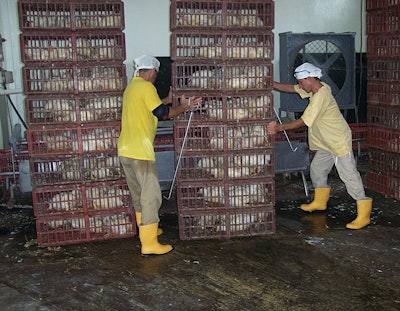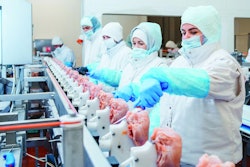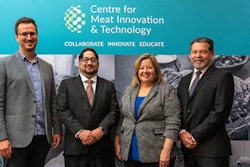
Why do some companies succeed, despite having access to only few resources, while others fail despite having ample resources?
The volatility, ambiguity, uncertainty and speed with which today’s business environment operates means that processing companies must be proactive, reacting in real time if they want to remain competitive. To do this there may not be time to bring in new hires or resources.
Ensuring that staff perform to the best of their abilities, either individually or as a group, may be a constant challenge for those running processing plants, but managers need to ensure that the company is gaining the maximum benefit from those that it employs.
Bringing in new resources may not always be the best route to success. It is worth remembering that it is at times of crisis, when there is an immediate focus on what a company has at its disposal, that incredible objectives are met.
Staff need to be multiskilled and have an attitude that problems can be solved.
Putting too much emphasis on resources can result in problems. It may be the case that a company wants to simply accumulate more resources than a rival. Additionally, when a company is resource rich, and uses those resources strictly as a supplier recommends, creativity may be stifled.
To help to ensure that the abilities of each employee benefit the company, there are a number of principles that need to be followed.
Benefits of autonomy
Employees must have a degree of autonomy when carrying tasks and duties. They also need to work towards continuous improvement. This approach could be applied, for example, to the harvesting of birds. While the primary task is to capture and cage the birds, employees could be continuously working towards improving the welfare of both workers and broilers.
The power of limitation
Creativity emerges when circumstances may limit action. Taking birds out of cages and hanging them on the overhead conveyor is a tiring process. However, workers would tire less quickly if, for example, they were provided with rockers similar to those used for manual evisceration equipment, that would absorb the weight of the birds being hung.
Make the most of what you have
A lack of care for the cages used to transport birds will see them become split and worn. Additionally, the hooks used to drag them across the floor will result in damage, meaning that their useful life is shortened.
Using specially designed carts to move stacks of crates, for example, would result in them lasting longer and make the use of hooks unnecessary.
Apply experience and expertise
Experience, typified by common sense and general knowledge, and expertise, i.e., an understanding of concepts and an ability to apply them, need to be constantly brought to bear in the processing plant.
For example, the purpose of scalding is to loosen feathers to facilitate plucking, but in many plants the heat gained by carcasses during scalding is lost before the carcasses reach the pluckers, making plucking more difficult than it need be. The solution, however, is quite simple.
To stop heat escaping during transit to the first plucker, the route should be covered and, if needed, a warm water sprinkler installed. When carcasses lose their heat, plucking is compromised, and too often the erroneous decision is taken to bring the two sides of the plucking machines closer together.
Create a culture of creativity
The ongoing demand for chicken means that there are opportunities to develop new product offerings. A culture of creativity needs to be fostered within the plant. To help to ensure that this happens, all personnel, in addition to carrying out their primary tasks, should be encouraged to think about how they can increase company profitability.
The dangers of over-planning
While planning is essential, if too rigid, it can result in lost opportunities. Looking at two different ways that music is made may serve as a useful example for understanding the benefits of less rigid planning.
If one thinks of a classical orchestra, led by the conductor, with each musician rigorously following a score, the result is harmonious. The musicians can be compared to workers at the plant following a detailed work plan and the conductor to management.
However, in today’s world this may not be the best approach. By way of comparison, consider a jazz band playing without a musical score. Each musician must react in real-time to the music of their bandmates to ensure that it continues and avoids silences. This collaboration may result in an amazing performance, and, with the band director’s support, unprecedented results can be achieved.
At the processing plant, trusting employees to achieve significant objectives, in their ability to co-operate, and encouraging them to view problems as interesting challenges, can pay dividends.
How a human-focus works at the poultry processing plant


















